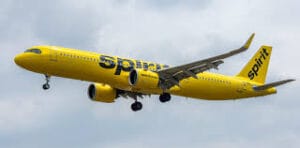Putin’s Apology for Deadly Plane Crash: What Really Happened and Why It’s Sparking International Tension!
On Saturday, Russian President Vladimir Putin expressed regret over a “tragic incident in Russia’s airspace,” according to the Kremlin, in relation to the crash of an Azerbaijan Airlines plane carrying 67 people. However, he did not explicitly accept responsibility for the incident.
Putin’s apology was made during a call with Azerbaijani President Ilham Aliyev and is likely to mitigate growing anger over the crash, which resulted in 38 fatalities. Preliminary findings from Azerbaijan’s investigation suggest that a missile from a Russian air defense system struck the Embraer 190 aircraft, and Russian authorities had diverted it out of Russian airspace. As many as 29 people survived the crash landing in Western Kazakhstan.
Azerbaijani politicians have publicly accused Russia of being responsible for the crash. During the call, Putin explained that Russian air defenses were responding to an attack by Ukrainian drones in the region at the time of the plane’s descent. “Putin reiterated his deep and sincere condolences to the families of the deceased and wished a speedy recovery to those injured,” the Kremlin said.
The Azerbaijani president’s office acknowledged Putin’s apology, noting that he mentioned an external factor as the cause of the disaster. Neither leader explicitly stated that a missile downed the plane, according to statements from both governments. However, Aliyev mentioned during the call that the aircraft’s body had numerous holes and objects had penetrated the fuselage, injuring passengers and crew members.
The two leaders discussed conducting a transparent and comprehensive investigation and bringing “those guilty to justice,” according to Azerbaijan’s statement. They also talked about providing compensation to the families affected, as reported by Azeri media.
The plane was en route from Baku, Azerbaijan’s capital, to Grozny in southern Russia. Survivors’ accounts suggest the plane was likely hit during its third attempt to descend into Grozny. Aviation experts believe that puncture holes in the plane’s vertical stabilizer may have caused the pilots to lose control of the aircraft.
For at least 75 minutes, the crew struggled to maintain a constant speed and altitude, with the aircraft fluctuating by as much as 8,000 feet multiple times, according to data from Flightradar24. The plane eventually made a crash landing near the western Kazakh city of Aktau, “thanks to the bravery and professionalism of the pilots,” Aliyev said.



